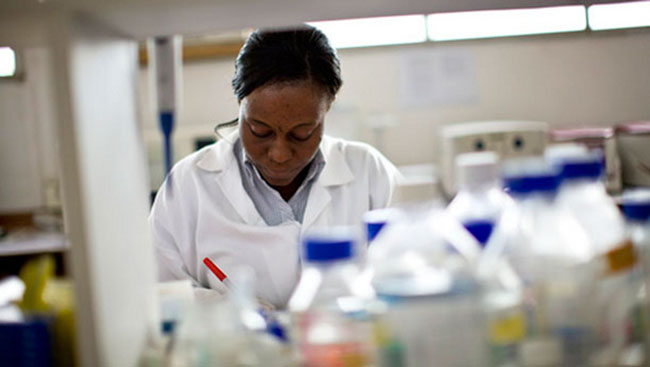Agriculture plays a critical role in keeping the African economy alive. According to the World Bank, this activity accounts for more than 30 per cent of the continent’s total GDP. Over the past few decades, African agricultural science has been focussing on increasing productivity and on ensuring food security by using agricultural techniques that limit crop vulnerability. These efforts have had a reasonable degree of success, so it was rather surprising to come across some recent comments made by professor Thomas Hertel, who teaches agricultural economics at Purdue University.
Hertel claimed that the latest scientific advances experienced by the agricultural sector in Africa could have a detrimental effect on the environment, increasing the amount of carbon emissions and raising deforestation levels. Hertel stressed that the impact of agricultural technology cannot be understood outside of its relationship with globalization. According to the study carried out by Hertel, using science and technology to accelerate the advent of a green revolution in Africa will only have positive effects on the environment if the global economy remains fragmented. Researchers found that the alternative scenario (global markets moving towards integration and African agricultural practices becoming more intensive) could result in an increase of 267 million metric tons of greenhouse gas emissions over a 25-year period. Hertel’s study concluded with a call to minimise the footprint of agricultural production while working towards increasing the amount of food supplies available at global level.
Does this mean that African agricultural science is doomed to fail?
On the contrary, recent developments have shown that African farmers are doing well by implementing sustainable crop intensification practices. In fact, some of the techniques developed in Africa could be exported to other vulnerable economies in Latin America and South East Asia, therefore furthering African science on the world stage.
Some successful scientific advances include the use of crop varieties that are tolerant to drought, using technologies like plant DNA sequencing, genomic selection, and field-based phenotyping. In this respect, it is worth mentioning the work of the International Institute of Tropical Agriculture (IITA), based in Nigeria. Likewise, we must highlight the advances brought about by the Drought Tolerant Maize for Africa project, a joint venture between the IITA and the International Maize and Wheat Improvement Center, which so far has benefited 20 million Africans. The pioneering scientific work of African organizations like those mentioned above cannot be overlooked, as it will continue to play a crucial role in making African science more visible in the global scene.
African entrepreneur and philanthropist Dr Alvaro Sobrinho is backing a campaign to ensure the number of successfully African PHD’s increases over the next decade thanks in part to investments that he has made in learning centres. He beieves that science & agriculture are entwined. In a recent interview with Post2015.org he had this to say on the subject:
“To me, scientific independence means having science, technology and innovation embedded in government policies alongside resourced and empowered institutions, including universities. It means the ability to produce – and keep! – many more brilliant scientists and to have science in the societal consciousness as a public good for us all.
Scientific Independence will be achieved when Africa is using innovation and research to move from knowledge consumption to knowledge creation, impacting every part of our daily life, from better healthcare systems to smarter food storage or agriculture.”
This independence does of course not imply isolation so it’s important that the business community understands the importance of its involvement. Dr Sobrinho again:
“I’ve been involved in business all my life. And I know the huge importance for business on this agenda. I am in the early stages of co-launching a group of African Business Champions for Science, along with the World Bank Africa team and their Vice President Makhtar Diop. This new group of influential business leaders, each of who employ thousands and run numerous organisations, will help finance new scientific and academic programmes and also raise the voice of industry in the campaign. At the PEI, we have just launched our business-led Partners Forum, for organisations who are willing to join the campaign and to help build a movement for increased focus on science.”
